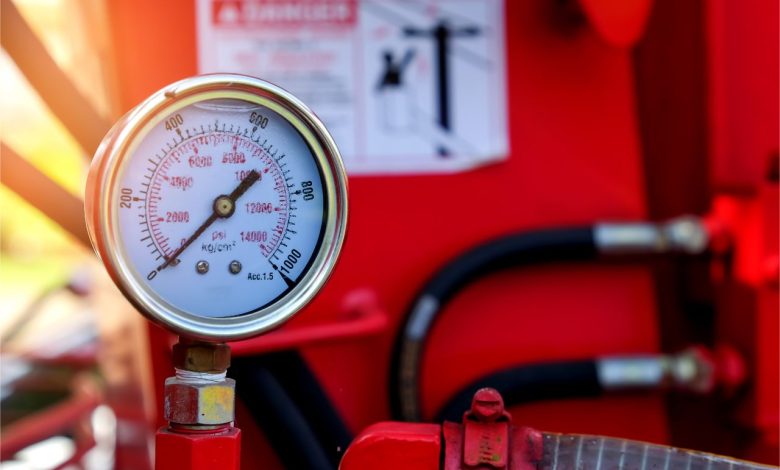
Throughout different industries, several equipment and machinery are using hydraulic oil as a means of making them run smoothly and efficiently. This lubricant is ideal for various applications across every industry. With this, it is actually a vital component for every industrial equipment out there, given that it is needed for them to function optimally, enabling work and motion to be done. While most people don’t pay much attention to this oil until they need it, they are unaware of the properties and how they differ from the other oils.
Moreover, hydraulic oil is responsible for contamination control and heat transfer, as well as being mainly used to transfer power within the hydraulic systems. Thus, when force is exerted on a non-compressible hydraulic fluid, the oil is being pushed through the hydraulic system, creating a force on another system.
This type of industrial lubricant is also a non-compressible fluid that is used to transfer power within hydraulic machinery and equipment. Similar to the oil in the engine of your car, it is also a fluid found within a piece of equipment that is used to transmit power within that equipment, which is generally driven by a pump. It also helps keep the machine cool, lubricated, and sufficiently protects it from external contaminants. Hydraulic oil can be synthetic (a man-made compound) or petroleum-based. It all depends on how and where you will be using it. Which is why it is important to understand which of the industrial equipment are utilizing hydraulic oil for them to function better.
Aircraft Equipment
One of the most common industries that utilizes hydraulic oil for their equipment would be the aviation industry. Aircraft equipment use this type of lubricant as a means of ensuring optimal system operation. All while reducing damage to the hydraulic system’s nonmetallic components. There are actually a variety of hydraulic lubricants on the market. However, some of them may not be suitable for aviation. As a result, the one that will be applying the oil must use the proper type to use for the aircraft.
Moreover, the hydraulic oil to be used in this industry tends to be reliable. It is the lubricant that is used for aviation control systems, aircraft hangar doors, aircraft jacks, and aircraft controls. This makes it critical in both the production of airplanes, as well as the machinery used to make them work. The landing gears and power-assisted brakes of the airplanes also make use of hydraulic equipment. Also, with just a small amount of hydraulic fluid, hydraulic systems provide a high amount of pressure relative to the operations. This makes it the reason why it is used for such important aspects of how airplanes function.
Hydraulic oils used in aviation or other aerospace applications must meet a wide range of demanding requirements. They come into contact with a variety of environments. They must have a high viscosity index, low temperature properties for high altitudes, and oxidation-resistant additives that further extend oil’s reliability in such a demanding industry. Aviation-specific oils are essential for flight controls, landing gear, brakes, and movement on the wings and other aircraft hydraulic motors and pumps.
Cruise Ships and the Marine Industry
In relation to the marine industry, the use of hydraulic oil as a means of improving the function of a vessel or an equipment has been deemed to be of importance. This type of oil usually acts as stabilizers. It reduces the amount of roll that could affect the balance of the vessel. Thus, these help the vessel to prevent sea-motion sickness that passengers usually experience when riding on it. Which is why it is most useful for cruise ships too.
Moreover, other marine boats and ships also require hydraulic oil for maneuvering. These hydraulic applications include steering systems, bow and stern thrusters, anchor windlasses, and the like. Hydraulic oils in the marine industry are often biodegradable as well. It is because of the regulations and the fragile environment in which they operate. It is also necessary that these fluids are long-lasting, efficient when cold temperatures interfere with their functionalities (during winter months), low viscosity fluids that have large amounts of traction and they are easily recycled as well.
Forklift Trucks
A hydraulic system is also integrated into forklift trucks. It is responsible for helping power the strong forklifts in lifting heavy goods. This results in them to depend on hydraulic oil for a smoother and more optimal function. Also for its lifting and steering abilities. Basically, forklift trucks would not function and might break down without hydraulic oil.
Whether you are lifting 20,000 pounds or 1,000 pounds, the forklift truck relies on the perfect amount of hydraulic fluid to provide excellent production. An inadequate level of hydraulic fluid could decrease the functionality of your forklift’s lifting and steering ability. However, an overabundance of fluid can cause leaks and spills, which could lead to safety and environmental dangers. Which is why it is also important to pour over just a sufficient amount of hydraulic oil for its proper functioning.
Tractors
One of the common heavy equipment that commonly utilizes hydraulic oil would be tractors. It is a primary component that tractors need for the operation of hydraulic brakes and systems. It is relative to industrial and agricultural vehicles and machinery. Hydraulic oil is also responsible for protecting its vital engine parts, keeping it running efficiently throughout the time used.
Automotive Lifts
Automotive, or car lifts, is also an equipment that integrates the hydraulic system. It works by elevating automobiles above the floor, as a means of giving access to the parts under the car. The formation of this system is similar to those of forklift trucks. This makes it a system that requires hydraulic oil as well to function properly. But then, hydraulic oil for automotive lifts tends to have a higher viscosity grade because of its high pressure.
Hydraulic oil is used to facilitate the functioning of car lifts. It is high in viscosity, while embodying a very thin quality in order to help with power-driven devices. These specific machines are expected to be highly effective. This is because they require strong hydraulic pressure more than most other machines (like a jack). But if you fail to oil your jack properly, it may not work as intended, or at all.
Key Takeaway
Hydraulic oil is widely used by most industrial equipment there is, such as aircraft equipment, marine vessels, forklift trucks, tractors, and even automotive lifts. It is suitable for machinery involving hydraulic systems and machines, as they help them run smoothly and efficiently. It can be used to transfer power, can act as a sealant, coolant, and lubricant. All while protecting the overall equipment as well.




